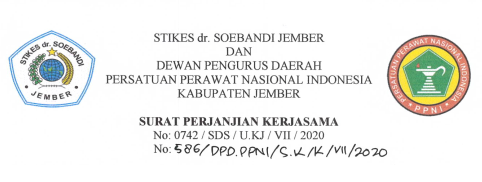Analysis Psychosocial Factors Affecting Behaviour of Self-Monitoring Blood Glucose in People with Type 2 Diabetes Mellitus
DOI:
https://doi.org/10.36858/jkds.v10i2.407Abstract
Introduction: Compliance with monitoring blood glucose levels is crucial to diabetes management. Self-monitoring behaviour of blood glucose levels can be influenced by psychosocial factors in people with T2DM, such as knowledge, coping, diabetes distress, family support, and nurse support. Objective: The study aimed to analyze psychosocial factors that influence the behaviour of self-monitoring of blood glucose levels in people with T2DM. Methods: The study was a descriptive-analytic study with a cross-sectional design. The sample was T2DM patients in the Jember Regency with a sample size of 138 respondents, taken using multistage random sampling. Data were collected using a questionnaire (SKILLDS, Coping Scale, DDS, HDFSS, Nurse's role perception, and the SMBG questionnaire) and analyzed using a multiple linear regression test. Results The modelling results show that psychosocial factors (knowledge, coping, diabetes distress, family support, and nurse support) have a simultaneous and significant influence on the behaviour of monitoring blood glucose levels (F = 9.292; p = 0.001 < α = 0.05) with adjusted R2 = 0.232. It showed that psychosocial factors could explain the variance of behaviour monitoring blood glucose levels by 23.2%. Partially, there are three influential variables, namely coping, perception of family support, and perception of nurse support (p= 0.039; p= 0.016; and p= 0.020 < α =0.05). Better coping, family support, and nurse support could improve blood glucose monitoring. Conclusion: Psychosocial factors can affect monitoring blood glucose levels in people with T2DM. The nurse can make efforts to improve the behaviour by monitoring blood glucose levels by considering the psychosocial aspects of people with T2DM through preventive promotion efforts to improve coping, family support, and nurse support to improve self-management and quality of life of people with T2DM.





